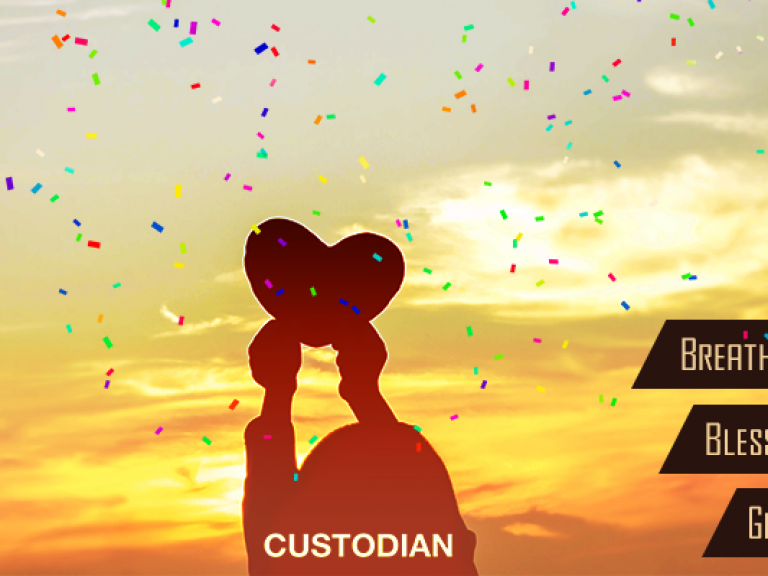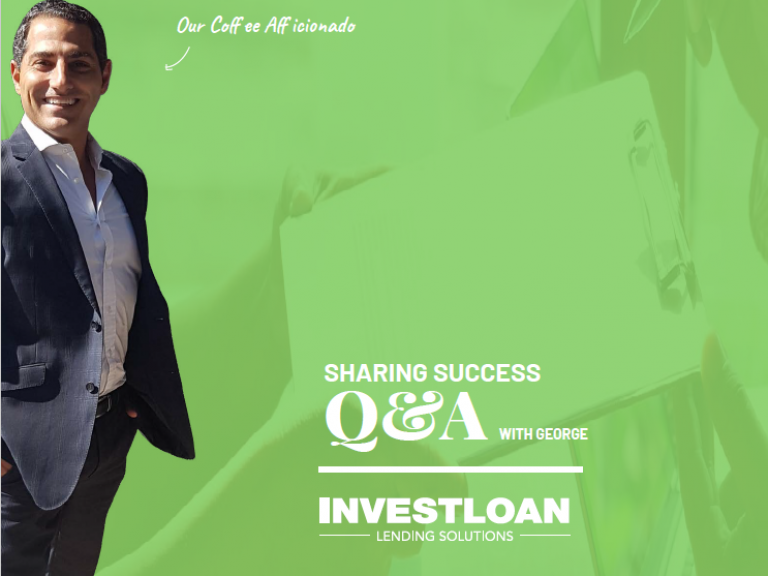
Why Set Goals?
Goals and success
Whether or not we consciously set them or write them down, we all have goals. Human beings are ‘purposive’ creatures: we make our choices and direct our actions in pursuit of things we think we need or want. A ‘goal’ is simply something we aim for, something we go after. If we didn’t have goals, we wouldn’t get up in the morning.
When it comes to deliberately choosing, stating or ‘setting’ goals for ourselves, however, some people feel uncomfortable. They don’t want to narrow their options. They don’t want to be goal-directed. They want to be spontaneous, take life as it comes, go with the flow... I’m going to suggest to you that without goals, there is no flow. And without goals, no matter how many options you have, you’re unlikely to crystallise any of them.
Goals focus our attention
It’s a well-known fact of human perception that we see what we’re looking for – and hear what we expect or want to hear. We couldn’t possibly take in all the information being thrown at us by our environment. (If you try to be aware of every object and sound and sensation around you where you are right now, you’ll find it very difficult to keep reading...). Fortunately, we have evolved with a survival mechanism which enables our senses to filter out stuff that isn’t relevant to our interests, needs, fears and wants – and to focus on the stuff that is.
The Reticular Activating System in the brain is responsible for ‘briefing’ our senses on what to look for. Have you ever noticed that when you take an interest in something, and start thinking about it, you begin to see it everywhere – even if you’d never come across it before? Have you ever noticed that some people seem to ‘attract’ the very things they want – while others seem to ‘attract’ the very things they fear? That’s the RAS in action.
Whatever your mind focuses on, that’s what your senses are primed to pick out of the barrage of stimuli thrown at you by the world you live in. It looks like things are coming to you – because your awareness is reaching out to them!
That’s the power of focusing on specific goals: it brings luck and coincidence and opportunity to us. As various scientists and sportspeople have found, it’s amazing how much ‘luckier’ you get when you start to plan and exercise discipline...
And that’s the power of focusing on positive goals, because we attract what we think about – good and bad. If we focus on what we lack, we won’t see anything else. If we focus on problems, things will only start to look worse.
“Chance favours the prepared mind.” - Louis Pasteur
Goals help us to move forward
Success isn’t necessarily about reaching a particular goal: it’s about moving toward the goal so that we grow and gain from the journey. Not so much where we are, or how far we get – but what direction we are moving in. Goals are like a compass: they set a direction, not a destination.
Colin Turner (Born to Succeed) puts it this way: ‘If you have been a success in the past and possibly a big one but you no longer have an objective to attain then you cease to be successful. Also, if you have decided what your goals are, but do not work towards them, then you are not being successful. Finally, if you have set your goals and you are working towards them but they are not worthwhile to you, then you are not being successful.’
Goals are only milestones along the journey: as we reach them, we need to set new ones to keep us moving forward. But they are about moving... Here’s another little story.

The parable of the fox and the hedgehog
The fox and the hedgehog are in the forest, and the fox says to the hedgehog, ‘So, Hedgehog, what will you do when the lion comes?’ The hedgehog says, ‘I only know one thing. When the lion comes, I’ll roll up into a ball to protect myself.’ The fox doesn’t look very impressed. ‘Why,’ says the hedgehog. ‘What will you do when the lion comes, Mr Fox?’ ‘Oh,’ says the fox. ‘I could do a thousand things. I’ve got plenty of options. I’ve been thinking about this for years, observing lion behaviour in depth and collating the results of fox-lion encounters. In fact, I wrote the book on ways to trick and evade the lion.’
Some days later, the fox and the hedgehog are at the waterhole, when suddenly – out from behind a tree – here comes the lion! The hedgehog squeaks and rolls up into a ball. The fox has a thousand options running through his mind as he backs away: the circumstances aren’t quite right for one option, the results of another aren’t quite what he’d wish, he could probably manage a third, if only – But it’s too late...
One of my favourite mottos is: it’s better to know a little and practise a lot than to know a lot and only practise a little.
There are plenty of people who know a lot – but only practice a little. When it comes to acting on what they know, the number of options (and the desire to keep them all open) often confuses them, slows them down... Some people never act. Others act too late. (This is why there are so many wealth-building ‘gurus’ who have never actually built wealth, and ‘success coaches’ who have never been successful at anything other than success coaching...)
I’m a great advocate of getting yourself informed. But always needing more information – or even ‘all’ the information – before you take a step is a sure way of going nowhere. We often use it as a sensible sounding excuse for going nowhere. (The ‘I don’t know enough’ defence...)
• Goals act as a reminder to move. They specify a step – in whatever direction. So at a certain point, we have to draw a line under the information-gathering (and every other form of preparation and procrastination) and do something.
• Goals allow us to focus on doing one thing – with permission to let all the other things we could be doing pass us by. Sure, there are always other options – but they are not necessarily ours: we’ve committed to one (rightly or wrongly) and we’re going to give it a fair chance.
I started working in real estate at 17 years of age – and have been working in real estate my whole working life. That doesn’t mean that I haven’t branched out and re-invented myself over the years: I certainly have! But the core of what I know and what I do is still the same. I’ve gotten to know my industry and to love it (despite my own successes and failures, and its ups and downs). It’s a game I play well, because I’ve been committed to it. I’m the CEO of a company that turns over more than $100 million a year – and I haven’t finished yet.
Goals and purpose
Goals get you moving – but they don’t tell you whether you’re moving in the ‘right’ direction. This confuses some people, because it seems to suggest that you need a clear sense of purpose before you can set any goals: you have to get the direction ‘right’ before you can start moving... Set out for somewhere and you will discover the underlying direction, passion and purpose of your life along the way. And all you need, to set out for somewhere, is a goal to get you started – if necessary, based on no more defined a sense of purpose than happiness, usefulness and developing your potential.
When I first started working in real estate my goal was to be a millionaire by the time I was 25. When it came to giving my goal some dimension – thinking what it would mean to me – I visualised myself owning a waterfront house where I could water-ski off the back of a pontoon. (This was a dream for me, having been State water-ski champion as a boy.) I set the goal, made it real to myself – and launched into the real estate business.
I reached the financial goal by the age of 23 and bought the riverfront house at age 25. I had the pontoon, which I was able to jump-start off shortly thereafter. Unfortunately, the house itself was a pull-down!
So I reset my goals. Now that I had the block of land, the new goal was to build my dream home. I started day-dreaming and visualising – and came up with a two-storey library/reading room, a commercial-style gymnasium, a large billiard room, a wine cellar, in-home cinema, 5 large bedrooms and 7 bathrooms, a two-storey atrium with large deck overlooking the pool and spa... You name it, I just let my imagination run wild. I scribbled plans and refined them and dreamed about them for over a year... And things started to happen... And that was the house I moved into on my 30th birthday.
Meanwhile, I’d developed confidence and skills and relationships and insights that began to take me in a new direction. My purpose in life wasn’t to make that first million dollars. Nor was it to build that home. They were certainly significant accomplishments for me, and I’m very proud of them. But when I got to each milestone, I realised that I hadn’t really ‘arrived’ – and that’s where a new adventure started.

Goals and plans
A friend of mine was a very successful stockbroker working with a large organisation. He decided that he wanted to go and work for himself. He left his job with a significant payout and could afford not to work for over a year. He spent the better part of that year drawing up a very clear, detailed plan for a new business venture he was going to launch. He refined it and refined it – and eventually presented it to some big fund managers, and easily raised the $6 million funding he required (it was really a very well thought out, convincing plan), and started his business. And within six months he went broke. My friend had planned for all sort of contingencies – but he hadn’t planned for them all to happen at once. When they did, he lost the heart to keep going...
Plans – particularly ‘grand plans’ – lock us into long stretches of action, the results and challenges of which we can’t really foresee. Any foreseeable disruptions to the plan have to be likewise locked in, in advance, as multiple possible alternative paths. (A grand plan can end up with more loops and dead-ends than a map of the London Underground!) Detours from the plan are extremely frustrating – because they take us further and further from the planned destination.
Goals, on the other hand, get us moving a short(ish) distance in a particular direction. When we reach the goal, we set another one. This gives us the flexibility to choose each new goal in response to our own changing needs, emerging opportunities and external contingencies – more or less as they present themselves. We are free to keep moving in the same direction – or to change direction.
A life-time sequence of goals, looked at with hindsight, may look like a plan. The difference is, you have shaped that journey. You have not had the frustration of letting the journey shape you.... My old boxing trainer used to say: ‘Everyone has a great plan – until they get hit! A true champion just has winning in his heart.’
Goals, dreams, and wishes
Goals are aims, intentions or objectives. They are not ‘wishes’.
• Wishes don't have an intentional or purposeful component to them: they don’t involve will or commitment. Goals do.
• Wishes don't have a real component to them: they don’t involve wrestling with the circumstances and resources you have, in order to bring about what you want. Goals do.
You have to get past ‘wishing’ to pursue and reach your goals.
Dreams, however, are the seeds of goals. A goal is a dream that you decide to act upon and see fulfilled. Powerful goals can come to us, literally, in dreams: the kind we have when we are asleep. But we also ‘dream’ whenever our imagination presents us with a compelling picture of what could be: a vision.
Goal setting reflects the complete Success Triangle.
We have a vision for something – and we know that we want that thing (awareness). The next step is for our waking mind and will to commit to turning that wanting into seeking (belief): the vision becomes a goal. And we go after it (conduct).

>>> Coming Next: The Power of Creative Thinking
Please note: This is an extract from the Signposts for Success – it may not contain the exercises from the full version of the book/audio set, for full version please contact us or follow our blog for more.
Thank you,
The team@Custodian








